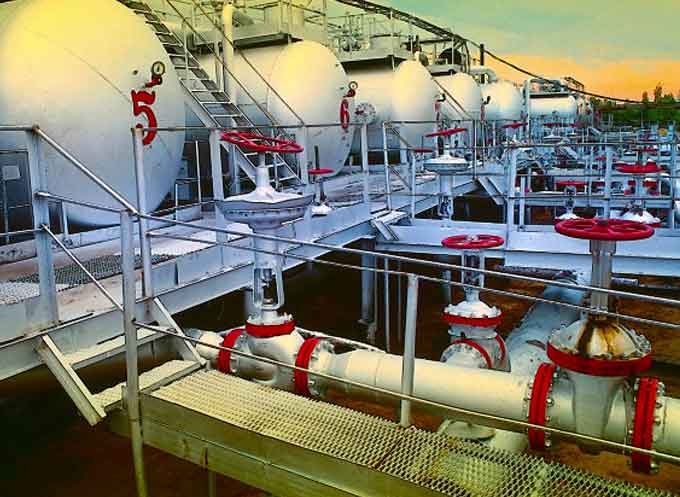
Chemicals are vital to our economy.
They are used to develop medicines that maintain our health, provide refrigeration for our food supply, manufacture fuel for our vehicles and build the microchip that runs our smartphones.
But in the hands of a terrorist, chemicals could potentially be used to cause a significant number of deaths and injuries.
To address these issues and more, the Department of Homeland Security (DHS) is launching the first of three DHSChemSecurityTalks events – DHSChemSecurityTalks – West event on June 27 in Oakland, California.

The DHSChemSecurityTalks, three, industry-wide networking and educational one-day regional events, will serve as regional meeting places that bring together the chemical community, industry owners and operators, key government officials, first responders, and law enforcement to engage in face-to-face discussions and share the latest in security best practices.
The DHSChemSecurityTalks are sponsored by the Department’s Infrastructure Security Compliance Division (ISCD).
These events feature current chemical security information, while bringing together representatives from the chemical community to engage in face-to-face discussions and share the latest in security best practices.
There is no registration fee to attend these events.
DHSChemSecurityTalks – West

WHEN: Wednesday, June 27, 2018
TIME: 7:30 AM – 4:30 PM PST
WHERE: Oakland federal Building Convention Center, Ronald V. Dellums Federal Building, 1301 Clay St., Oakland, California. 94612
Register today to attend the DHSChemSecurityTalks WEST event.
There is no registration fee associated with this event, but registration is required and seating is limited.
Please Note: This is a federal facility. Please remember to bring a form of government-issued identification. The general public may access the building at 7:30am.
Who Should Attend?
Industry professionals throughout the entire chemical sector who are involved with:
- Chemical facility security
- Environment, health, and safety issues
- Transportation and distribution of chemical products
Key Topics for the DHSChemSecurityTalks:
- Chemical Facility Anti-Terrorism Standards (CFATS) Program updates (learn More about CFATS below) and other chemical security regulations
- Deep dive into security measures to improve facility security
- Cyber and physical security in the current threat environment
- Cyber security trends and resources
- Regional threat briefing
- Joint regulatory and voluntary program outreach information
- Best practices and lessons learned in chemical security
Benefits of Attending
• Obtain a better understanding of chemical security regulations
• Meet one-on-one with key Department of Homeland Security officials
• Discuss and discover best practices for Site Security Plans and Inspections
• Network with other industry partners

The DHSChemSecurityTalks series are excellent engagement opportunities for chemical stakeholders to connect with chemical owners and operators as well as cross-sector representatives supportive of the chemical industry, such as those from the Food and Agriculture, Energy, Healthcare and Public Health, and Emergency Services sectors.
Participation enhances the protection and resilience of the Nation’s chemical facilities.
DHSChemSecurityTalks provide a bilateral information-sharing forum for participants to receive chemical security regulatory updates, cybersecurity updates, and voluntary program information.
This event will provide a forum for representatives from the chemical community to network and learn more about chemical security with DHS officials.
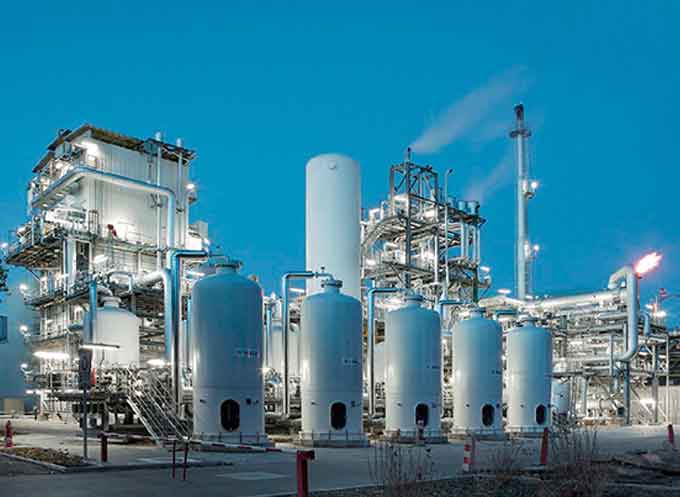
DHS senior leadership attending the events will be available for one-on-one interviews.
Industry professionals throughout the entire chemical sector are expected to attend.
The DHSChemSecurityTalks bring together representatives from the chemical community, as well as government officials, law enforcement and first responders to engage in face-to-face discussions and share the latest in security best practices.
The DHSChemSecurityTalks morning sessions will feature similar Chemical Facility Anti-Terrorism Standards regulatory updates and measures on how to improve high-risk chemical facility security, while the afternoon sessions will be more region-specific, focusing on threat, soft target security, cyber, and other voluntary programs.
Additionally, DHS will host DHSChemSecurityTalks events as follows:
-
DHSChemSecurityTalks – EAST
- (August date, location, and registration coming soon)
-
DHSChemSecurityTalks – MID (July 19, 2018 – Chicago, IL)
- Register today to attend the MID event
All three events will feature CFATS regulatory updates during the morning sessions, and region-specific and voluntary information in the afternoon sessions.
- For more information on the 2018 DHSChemSecurityTalks visit the Chemical Sector Regional Events page.
- If you have any questions, email DHSChemSecurityTalks@hq.dhs.gov
- Follow@NPPD on Twitter for updates on these events and the latest on protecting the Nation’s critical infrastructure.
Learn More…
Chemical Facility Anti-Terrorism Standards (CFATS)
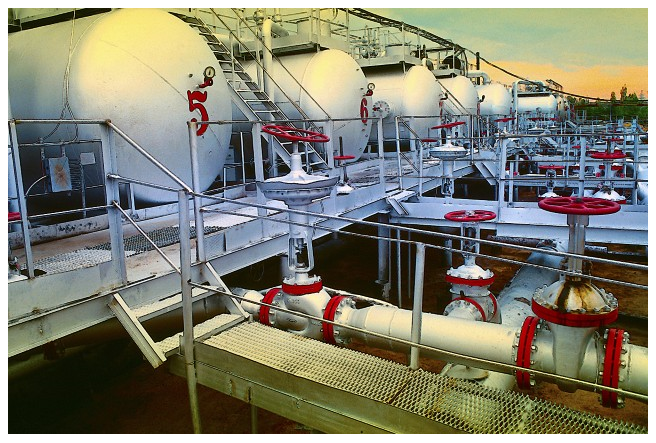 CFATS is the Nation’s first regulatory program focused specifically on security at high-risk chemical facilities.
CFATS is the Nation’s first regulatory program focused specifically on security at high-risk chemical facilities.
DHS, through the Infrastructure Security Compliance Division (ISCD), administers the CFATS program by working with facilities to ensure they have security measures in place to reduce the risks associated with certain hazardous chemicals, and prevent them from being exploited in a terrorist attack.
What is CFATS?
CFATS is a regulatory program (6 CFR Part 27) established in 2007 that addresses chemical security by identifying and regulating high-risk facilities that possess certain chemicals of interest (COI) at specific concentrations and quantities.
In 2014, Congress reauthorized and amended the program through the Protecting and Securing Chemical Facilities from Terrorist Attacks Act of 2014 (6 U.S.C. § 621, et seq).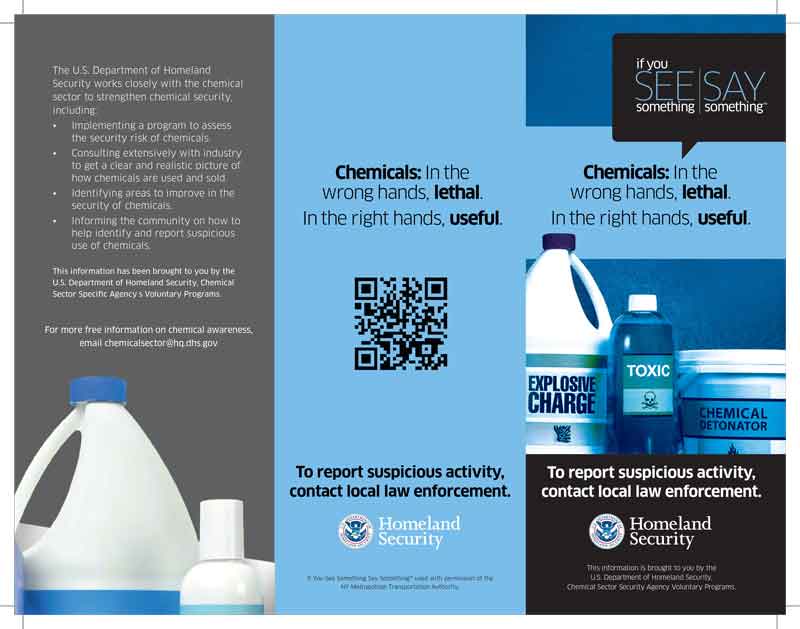
Under CFATS, a chemical facility is any establishment or individual that possesses or plans to possess any of the 300 chemicals of interest (COI) in Appendix A at or above the listed Screening Threshold Quantity (STQ).
These facilities must report their chemical holdings to DHS via an online an online questionnaire, known as a Top-Screen.
DHS uses the Top-Screen information a facility submits to determine if the facility is considered high-risk and must develop a security plan.
CFATS regulation applies to facilities across many industries—chemical manufacturing, storage, and distribution, energy and utilities, agriculture and food, explosives, mining, electronics, plastics, universities and laboratories, paint and coatings, healthcare and pharmaceuticals.
Chemical security is not a temporary issue. As threats evolve, the Department is committed to working with stakeholders to protect the Nation’s highest-risk chemical infrastructure.
The CFATS regulation applies to facilities across many industries, including:
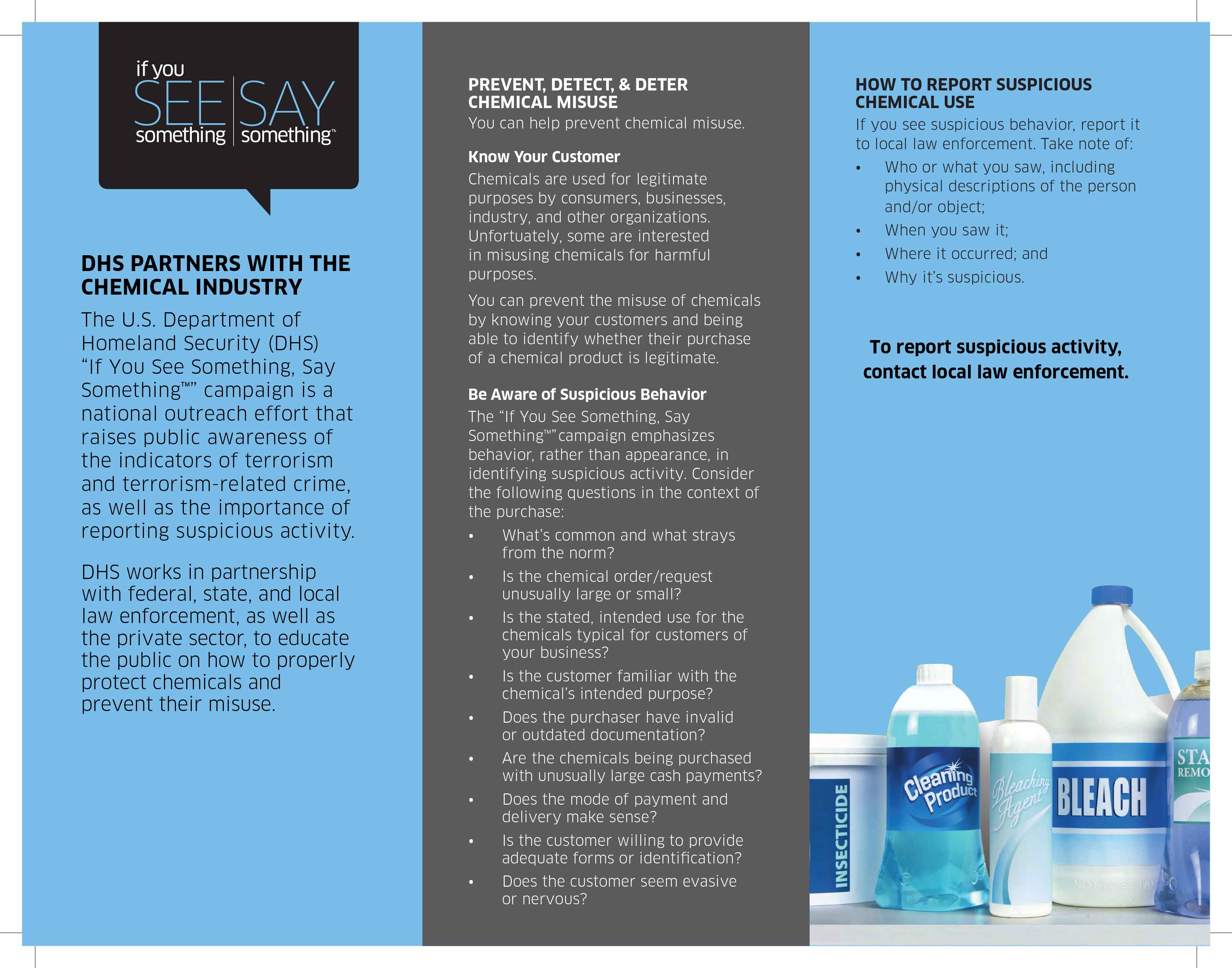 Chemical manufacturing, storage, and distribution
Chemical manufacturing, storage, and distribution- Energy and utilities
- Agriculture and food
- Explosives
- Mining
- Electronics
- Plastics
- Universities and laboratories
- Paint and coatings
- Healthcare and pharmaceuticals
















